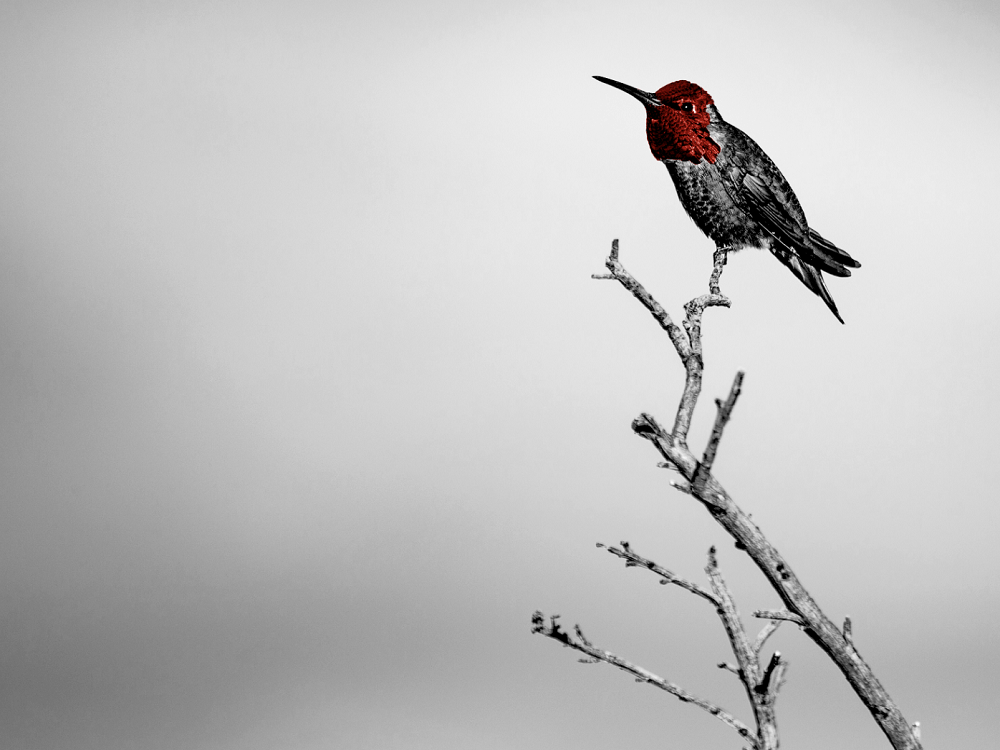Richard Levick – The Miracle on Pennsylvania Avenue
“When I look at history, literary and social, I find that I side pretty steadily with history’s eccentrics. I don’t mean all the mad astrologists and mystics […] but simply the mundane eccentrics who have stood on the sidelines with the game in progress, and made frosty remarks instead of cheering.”
–Reed Whittemore, former U.S. poet laureate
On the morning of September 1st, like clockwork, the hummingbirds stopped coming to their feeders. Truth be told, there were two stragglers the next day, probably a little late packing their bags for Central America, but that was it. Their annual migration has begun. Now the morning meditation and prayers are accompanied only by the nuthatches, robins, cardinals, mourning doves, grackles, crows, blue jays and the ever-present sparrows. And, of course, the omnipresent squirrels. All are beautiful in their own way, but none quite as miraculous as the diminutive hummingbird. As for the squirrels, some know me and literally tap on my home office windows when the bird food has run low. Some fight the squirrels in a losing battle. I’ve settled for politeness.A week later, Tuesday morning, after Labor Day, almost to the minute, the phones started ringing. America was back to work. Pandemic or no, we are all somehow tied to the academic year as our business circadian rhythms. We abide many rituals – from holidays to family functions – as they give us grounding and help us make sense of the passage of time.When I was a young boy, growing up in the shadow of the dome in Bethesda, Maryland, my father and I would watch the presidential inaugurals on television, and he would comment on the “miracle of the peaceful transition of power.” I was unmoved by this miracle, no more than migration. This was, after all, how it had been for over two centuries. “What’s the fuss?” But as we have come to learn, maybe the past isn’t prologue after all. As William Faulkner mused, “The past is never dead. It’s not even past.”I’ve been reading a lot lately about the possibility that this may not be a peaceful transition after all – and it isn’t pretty. As CNN’s Fareed Zakaria writes, “It is not some outlandish fantasy, but rather the most likely course of events based on what we know today.”One of the advantages of hosting daily podcasts is the honor to work with so many interesting people and icons of history. As I’ve come to learn, the pre-show calls are often as interesting as the podcasts themselves, when guests will reveal great truths in passing. Three weeks ago, 88-year-old Andrew Young, who regularly worked and marched with Martin Luther King, Jr., said “These are the most troubling and challenging times of my life.”This week, while on air, American University Distinguished Professor of History and author, Allan Lichtman, who has correctly predicted the winning candidate in nine straight presidential elections through the use of his 13 Keys to the White House painfully mentioned that what keeps him up at nights is fear about the access to voting and Russian interference. He predicted a Donald Trump victory early in 2016 and in 2020, predicts a Biden victory, but this time, with an unheard-of caveat – “if the elections are free and fair.”“If the elections are free and fair?” In the United States of America?We’ve been through a lot – a pandemic, economic and civil unrest. But what happens if November 3rd is no more decisive than the wearing of masks? If election results are delayed for days or weeks? If the confusion of Bush v. Gore is magnified a hundredfold in today’s bitterly divisive environment?Already, in the absence of a federal response to the coronavirus, businesses have stepped in to fill the void. Is your company ready for election related disruption the likes of which we have never seen, and prepared to provide the needed leadership? First, by providing the time to vote and second, with the internal communications to calm your employees? Let alone the possible need for external communications to quell combustion?What happens if demonstrations follow? Aggravated social media? An onslaught of political accusations masked as HR complaints? A refusal to work with those that voted otherwise? Activists’ apparel? Unprecedented distraction in the workforce? If employees use company social platforms to pour accelerant on existing tensions? And if, heaven forbid, there is violence in your communities? Among your workforce? At or near your places of business? The time to crisis plan is now. It may be unheard of, but it is no longer unlikely.There are 49 days until the election. If you haven’t started planning, you need to.
